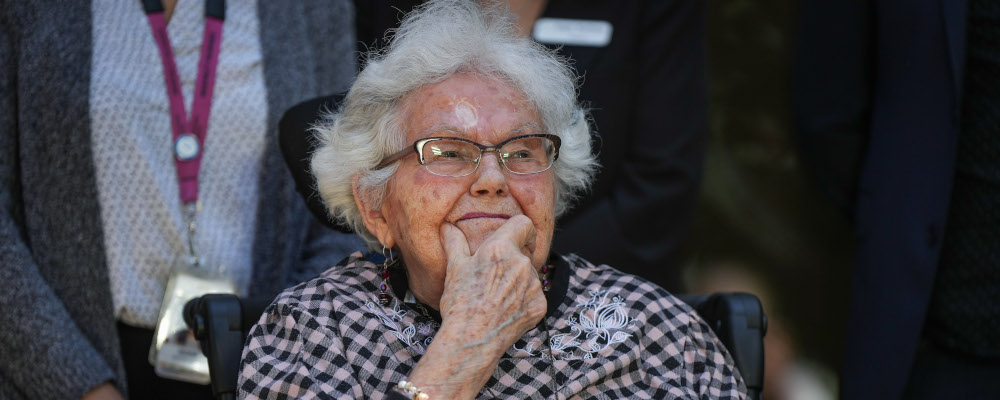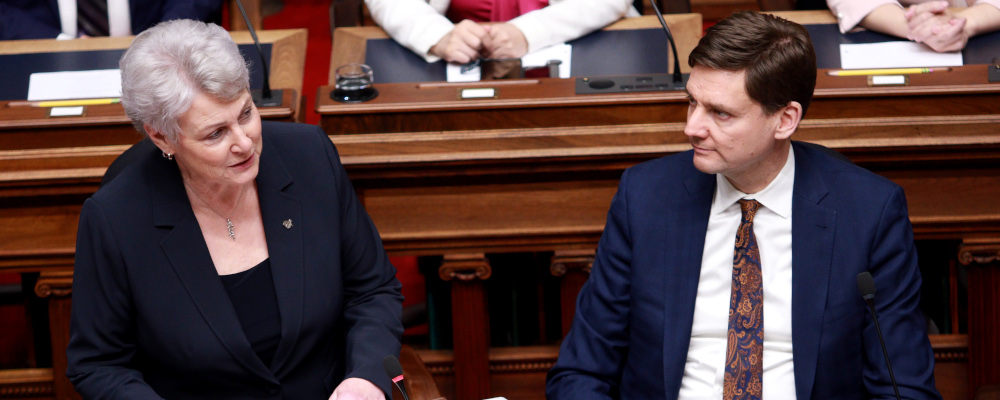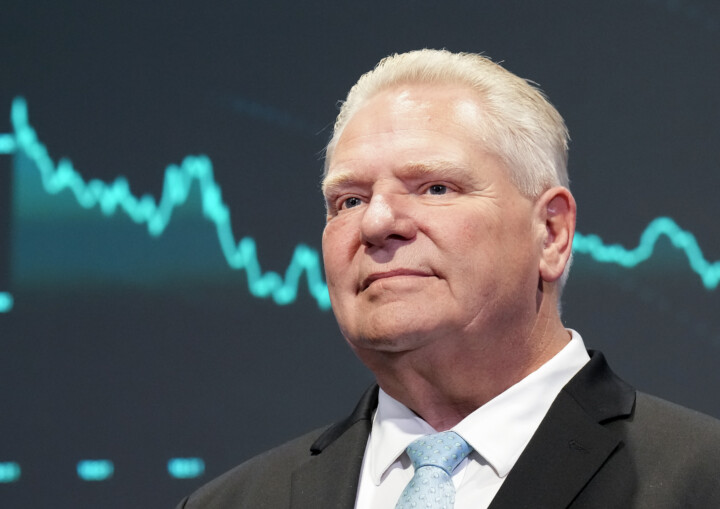Last week’s B.C. budget features a hard truth that, until now, had been swept under the carpet in the province and elsewhere across the country. Previous governments did not prepare adequately for the medical care Baby Boomers consume in retirement.
This lack of preparation is a driving force behind B.C.’s $7.9 billion deficit.
Just whispering this hard truth has been judged too politically risky for years—in part because of the “politics of gerontocracy” described by Hub editor-at-large, Sean Speer. So Premier Eby deserves full marks for political bravery and honesty in his government’s budget document.
Now all provincial governments should take note because the same honesty will be necessary to regain control over their revenue and spending pressures. Here’s why.

“Continuing to provide high-quality medical care is one of the fastest growing costs facing us collectively, primarily due to our aging population,” explains the B.C. government in its Strategic Plan. “In the 1970s, there were seven working-age adults for every retiree. Now, there are only three. That made it easier in decades past for the Province to cover the medical-care costs of our aging loved ones.”
By failing to prepare for this demographic shift, past provincial governments made a glaring error. This error could have been prevented by following the example of federal adaptations to the Canada Pension Plan (CPP).
In the mid-1990s, Ottawa recognized that a shrinking ratio of workers to retirees required changes to CPP. To keep the program solvent for future generations, CPP shifted to a prepay system. Under this model, the payments individuals contribute over their working lives are closer to the average cost of CPP benefits they expect to use in the future. The change increased annual CPP contribution rates by 65 percent but ensured the long-term viability of the program.
Unfortunately, provinces didn’t make similar changes to revenue collection for medical care, which remains a “pay as the province goes” system. This means governments collect revenue each year to correspond (more or less) with the cost of the medical care used by residents in that same year.
This lack of foresight means all provincial budgets are now in a precarious position. Boomers dutifully paid taxes according to the rules of the day. But those rules asked them to pay for the smaller percentage of retirees who came before them—not for the full cost of the medical care they would actually use. As a result, those rules now leave insufficient funds to pay for Boomers’ medical care. Either that or unpaid bills for their offspring to pay.
B.C.’s Budget 2024 opts for the latter. Medical care received the largest single-year increase in B.C. history: $4.5 billion in 2024, growing to $6 billion by 2026. About half of this new money will be used by residents aged 65 or older, who represent 20 percent of the population.
Before the NDP were elected in B.C., Christy Clark’s government managed similar fiscal pressures by reserving new spending primarily for medical care. Since Canadians use more medical care after age 65 than earlier, my calculations estimate that her government grew spending for seniors about four times faster than for those under age 45.
Premier Eby is charting a different path. “Our government is determined to make B.C. work for all generations,” states the Strategic Plan. “We’re committed to planning for all ages and investing wisely in well-being, from the early years onward.”
Early signs show B.C. is making real changes to meet this commitment. The age gap in new provincial investment under Eby is less than half of the gap budgeted by Clark. This matters for the finances of younger residents because it means more money for child care, housing, and postsecondary and K-12 education.
Yet as B.C. starts “to grapple with the need to address demographic challenges, while also ramping up investments in young people so they can succeed”, the government’s revenue problem remains.

It’s not enough to apply a generational fairness lens to new spending. We also need to apply this lens to how to pay for government investments. This is a weakness in B.C.’s 2024 budget.
Premier Eby proposes to run deficits over the next three years that are larger than deficits run during the pandemic, even though the province is not in recession.
B.C.’s debt servicing charges were already $3.3 billion last year. They will grow to $5.7 billion by 2026. That’s more than B.C. will spend on child care and housing combined.
By recognizing the decades-long failure of previous governments to raise enough revenue from Boomers to pay for their healthy retirements, the current government correctly acknowledges that it has inherited a structural deficit.
Now we need the Premier to be brave enough to engage British Columbians in a hard truth conversation about how we, and especially affluent Boomers, pay for the services we want.
Recommended for You

A rocky road for Ontario, and an unconventional CUSMA renegotiation: The Hub predicts 2026

Poilievre will survive as CPC leader, and Canada will stay golden in men’s hockey: The Hub predicts 2026

Supply management will be sacrificed to appease Trump, and the Netflix takeover is bad for Hollywood: The Hub predicts 2026

Canada will attempt to join the EU and Justin Trudeau becomes a Katy Perry lyric: The Hub predicts 2026



